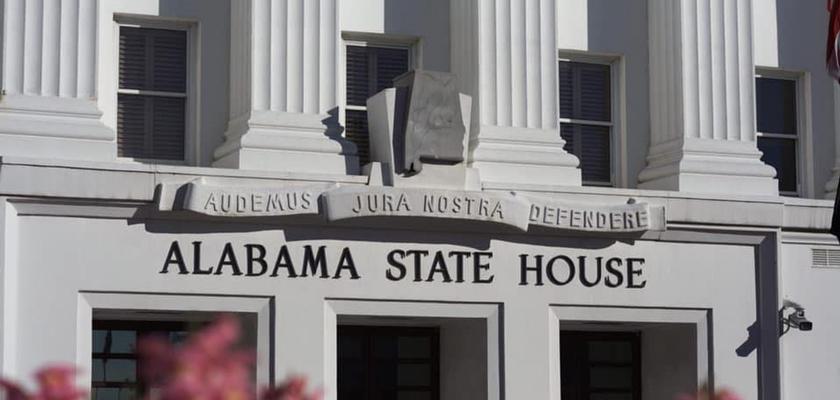Thursday, mere minutes away from the stroke of midnight, the gavel slammed on the Alabama Senate for the final time this session.
Following the conclusion of the session, Senate Minority Leader Bobby Singleton gave his thoughts on the performance of the Senate.
During the three-month affair, there were multiple bills with which Singleton gave ample protest, which he believes demonstrates the legislative process at work.
“At the end of the day, I think we went through the process, and what people saw today was the process working,” Singleton said. “There’s a lot of controversial bills, and even the bills where there was controversy from Democrat to Republican – and there was some [intra]-party controversy with Republican to Republican and some Democrat to some Democrat – and so, we work them all out. We go out to the back and work it out. And you saw today, every bill that we had that was controversial got resolved, even to the late hour of the night. So I think we had a great session.”
There is discussion of another special session this year to address the allocation of the second round of federal COVID-19 relief funds through the American Rescue Plan Act (ARPA). Singleton said the funds available for distribution could be in excess of $1 billion.
“We want to concentrate on those areas where there are needs,” Singleton said. “More infrastructure, more broadband, [and] making sure that we expand healthcare services… We want to see those dollars spent on people, business and making sure that we are taking care of those issues for the state of Alabama.”
The President Pro Tempore of the Senate, Greg Reed, gave a positive summation of the bipartisan work of the Alabama legislature. Reed claimed he was “excited” about the outcome of this session and the appropriation of the ARPA funds from the special session.
“We had a great session,” Reed said. "I want people to understand, Republicans and Democrats working well together in the Alabama Senate is very important to the people of Alabama. [We were] getting things done as a result and being able to do that is something that is a priority for me.”
Reed claimed that the highlights of the session came in the $160 million in tax cuts for the people of Alabama and positive results for broadband infrastructure, small business tax cuts and benefits to Alabama farmers.
Reed praised the new Alabama budget, saying it was a promising sign for Alabama.
"We had a very productive session with some significant highlights, the budgets being at the top of the list," Reed said. "Which [passed] strong budgets, pay raises, paying back millions and hundreds of millions of dollars in debt to ourselves, which is very important to the people of Alabama.”
Several bills did not make it to the Senate floor during this session, causing them to not receive final passage on the floor, thus not becoming law.
One such bill was House Bill 312, by State Rep. Ed Oliver (R-Dadeville), which would rid K-12 classrooms of “divisive” concepts regarding race, sexuality or religion.
In the final days of the session, sources told 1819 News that the bill was stalled in the Senate Republican Caucus. Ultimately, the bill never made an appearance on the floor.
Reed told 1819 News that the bills that made it on the Senate floor were the bills they had as a priority.
“I think there was a lot of discussion on ‘how do we define things that are the most important in looking at a number of different issues,'” Reed said. “I think those were all discussed. They were discussed in our Caucus meetings, but we decided on the issues that we passed as being the priorities for the Alabama Senate, so we moved those items forward. [We] felt like they were the most important to help define and focus on as a body, and that was what we passed.”
To connect with the author of this story, or to comment, email craig.monger@1819news.com










